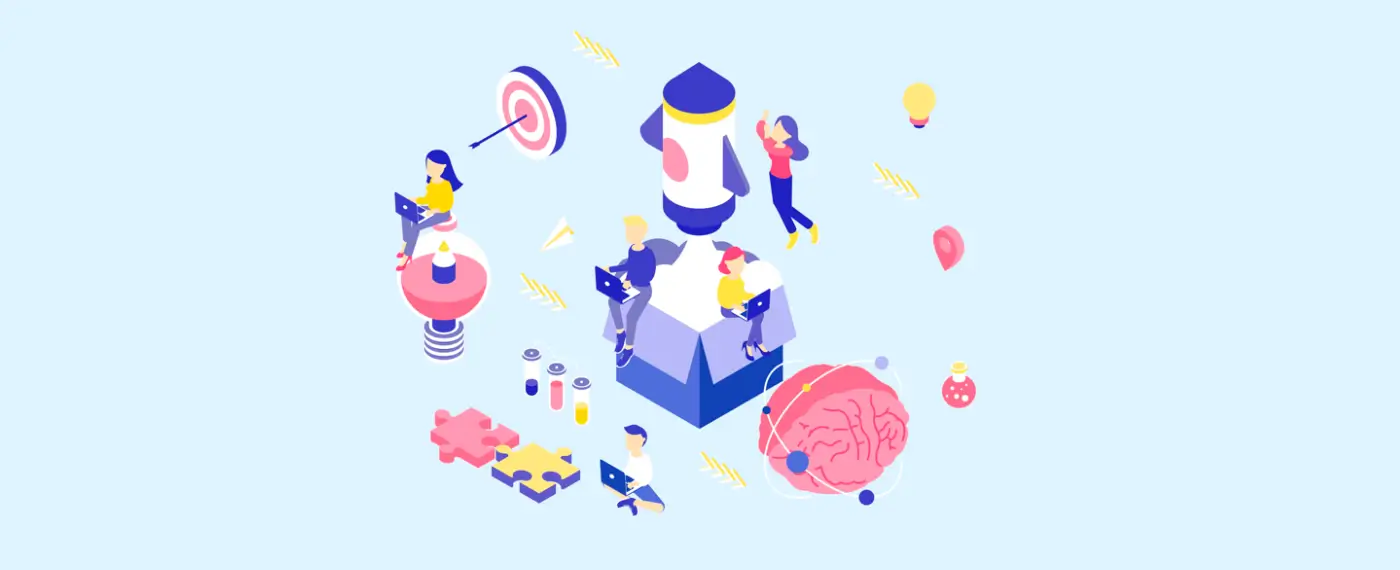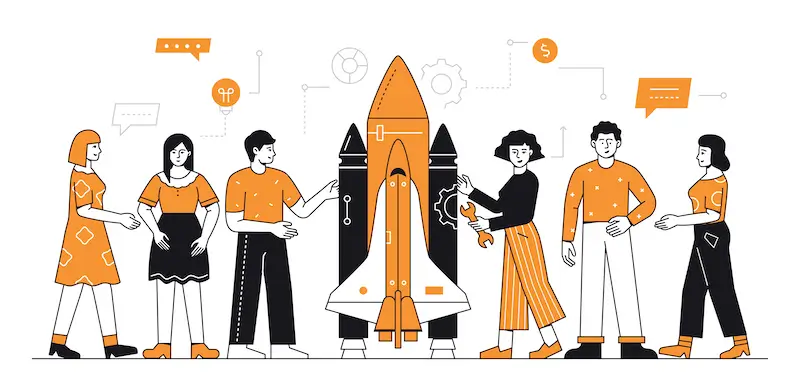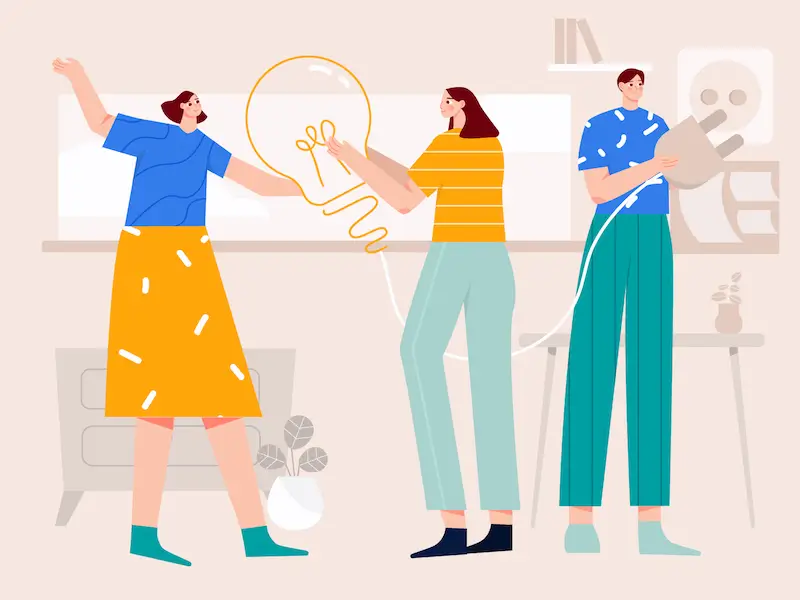
10 Great Cognitive Activities for Adults to Boost Memory
Table of Contents
The brain’s cognitive function and ability may be improved through daily activities, which increase memory and intelligence. A few quick examples of activities that may prove to boost memory and increase intelligence include: a mindful walk, the use of imagination while reading, and words games.
Strengthened cognitive functions and improved memory skills are imperative for overall development and keeping your brain healthy. With competently developed memory activities for adults, it is also possible to fight signs of mental aging that may include difficulties with multitasking, sluggish cognitive tempo, or more passive thinking. Experiencing noticeable decreases in the ability to concentrate, forgetfulness, frequent memory lapses, or struggle with completing complex tasks, you must discover efficient ways to achieve high cognitive performance.
What Are Cognitive Processes?
Any mental process thought to be involved in acquiring knowledge, storing, and recalling memories. Through our experience, reflection, thinking, and senses, understanding is known as cognition. Growing your mental power through cognitive stimulation activities improves your attention, allows remember more complex concepts and tons of new information, enhances your ability to think more critically as you age, and boosts analytical skills.
Different Types of Cognitive Processes
Everything ranging from simple daily objectives to understanding complex concepts requires ample mental skills. Solving problems in the workplace, reading the traffic signs, exchanging money, and dealing with a range of other daily routine tasks are impossible without healthy brain function. You may improve your mental power throughout your life. However, you can grow even more outstanding skills and attain impressive academic or career heights by doing it strategically.
There is a myriad of cognitive activities that exist for:
- Developing skills for analyzing facts and forming judgments;
- Supporting long-term learning for expanding your horizons;
- Boosting confidence;
- Instilling a thirst for learning.
Let’s take a quick look at the four different processes to detect some mental or memory issues you may struggle with and pick the right tactic for revealing your natural mental potential and ensuring strong information retention, sharpened core mental abilities, higher reasoning, and stronger focus.
Attention
Attention can be abstracted from some things to deal with other, more paramount things capably and efficiently. It means that a person does not process everything around but focuses on something particular. Lack of focus during studying, for example, inhibits processing systems responsible for gaining new knowledge. However, working towards strong attention will make you more effective, raise your productivity levels, and minimize the likelihood of mistakes. Moreover, being detail-oriented is critical for producing superior quality work.
Sensation and Perception
Sensation helps us to perceive the surrounding environment resulting from something that comes into contact with our sensory organs. Our sensory receptors transmit signals to the brain where the perception process takes place, and sensory information is interpreted and organized. Generally, these two concepts are really closely related and responsible for shaping our perception of the world and our interaction with it.
Comprehension
Constructing meaning and retrieving information from what has been read or heard are known as comprehension. It can also be described as the mental power of abstract thinking. Targeting comprehension skills, you can add exercises for a cognitive activity to your daily life.
Memory
What’s your earliest memory? What about the memory that causes the most considerable excitement? Think about your entire living experience. Isn’t that just a series of your memories encoded and stored somewhere in the working areas of your brain? Generally, it is believed that our memories define our life. It enables us to learn, discover new things, recognize people, and make us remember skills. Thus, memory is one of the vital cognitive processes. Looking for ways on how to improve memory and make it stronger, memory activities for adults are the top recommendation. A properly designed memory-boosting scheme gives space to the objective analysis and evaluation of the most sophisticated issues and nurtures strong attention to detail.

10 Useful and Engaging Cognitive Activities for Adults
Like any other muscle in your body, your brain also needs stimulative exercises and cognitive practices. Lack of cognitive stimulation activities can lead to mild cognitive impairment and worsening symptoms of mental aging. As a result, cognitive training is a booming industry today. People can train themselves using traditional games and digital platforms, and apps. And while some researches suggest that such activities are inefficient and misleading, there are an array of modern and old-school techniques and scientifically proven ways to sharpen your mind and grow intellectually.
Let’s explore some methods that are available to everyone and can be beneficial for your brain’s youth and health.
Do a Mindful Walk. Staying in motion while trying to focus on each of your steps and breathing is an excellent way to reconnect with nature and the environment and gain great concentration skills.
Try Creative Activity. Want to boost your strategic thinking, the ability to come up with the right solution to the problem quickly, and creativity? This mix of impressive mental performance can be attained through one of the most pleasant and joyful cognitive activities. Thus, drawing is an evidence-based method that helps release your creative energy and promote your desire to compose something new. Who knows, maybe, therefore, you will discover your inner artist!
Count Letters. Choosing a particular letter and counting how many times this letter appears in the text can help you to learn how to cope with different distracting factors with the mission to achieve a particular goal.
Memory exercises with colors. Color perception is considered to be best for your mental stimulation. There are some excellent exercises, e.g., you can pick a colorful text and challenge your attention in a fun way.
Estimation and Approximation. Having a free minute during the day, you can do simple approximate calculation exercises. All you have to do is to pick any two items. Then, move one item from another. Now your task is to find out how many such items can fit in the space between them.
Card Games. Playing card games can seem like a waste of time for some people. But striving to trigger the use of imagination, expand memory capacity, and prevent signs of brain aging, card games are a good choice. It is a proven way to nourish and protect your brain.
Word Games. Many online and offline games to improve memory can come in handy when dealing with cognitive decline. Thus, you can play word association with your family members or try board games, such as Boggle. Going digitally, such picks as Word Search Puzzles can create a new brain-boosting experience.
Sequences Memorization. Trick and challenge your short-term memory. Try listing your favorite movies, all the vegetables that are red, or the names of the streets in your city. After some time, try to repeat the same listing without breaking the order.
Number Games. Engaging and interactive counting games can drastically change how you think and perceive complex information.
Evoke Imagination by Reading. Reading is probably the most efficient cognitive activity, as it involves most of the mental processes. It jolts your brain into high performance. For those who look for tactics to grow imagination and intelligence or build an extensive vocabulary but, at the same time, relax stressful thoughts and calm down the mind, a good book is essential.

Importance of Cognitive Processes For Our Learning
Cognitive skills play an essential role in learning, especially when it comes to gathering and synthesizing information. It means that you can take several sources of information and combine the most crucial things taken from there into one cohesive idea. Apart from integrating fresh knowledge with prior experience, mental actions are also responsible for the retrieval of details, scenes, and emotions from the past.
Detect Cognitive Processes Decline Caused by Aging
As individuals age, all the body systems slowly decline. Brain and cognitive processes are not an exception. Thus, getting older, some people report memory slips and lapses, extreme forgetfulness and confusion, inattentiveness, and troubles dealing with complicated tasks that require mental effort. Starting to experience changes in how you think and memorize can be worrisome. However, unless it isn’t a severe disorder that can be managed only with smartly created treatment and medicine, there is a chance to reverse the decline, bring back clarity of mind, and regain the ability of accurate and detailed recalling with well-selected cognitive activities.
To Sum Up
A person needs cognition, as it helps to safely interact with our environment, create memories and hide them into long-term storage for later recall, and, generally, be engaged in long-term learning. Moreover, monitoring mental performance opens up the chance to timely detect its decline due to aging and prevent poor scenarios and cognitive impairment by strategically applying cognitive activities for adults.